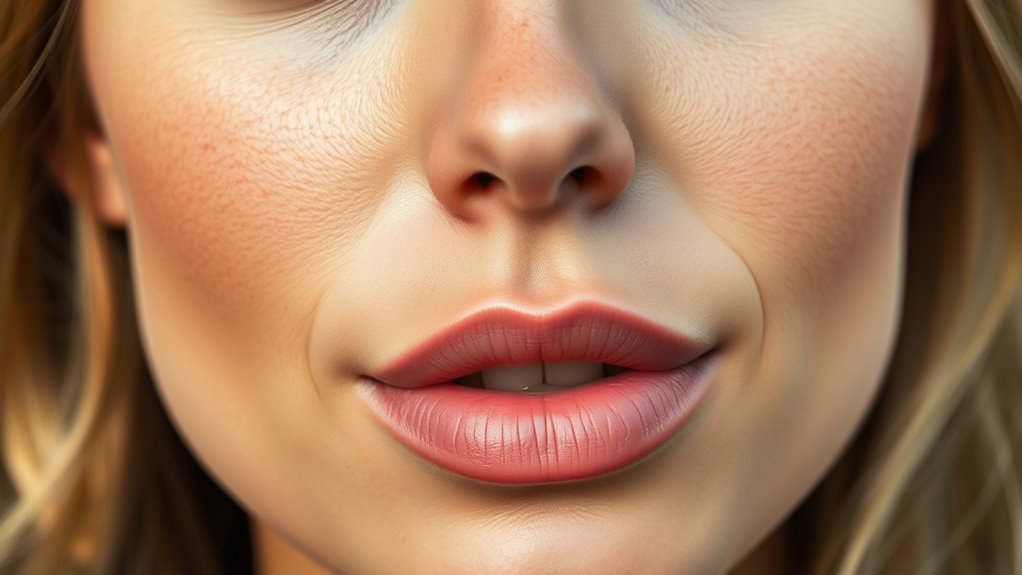I Drank More Water for My Skin – The Results Surprised Me
When you increase your water intake for better skin health, you’ll quickly notice enhanced hydration that reduces dryness and restores a natural glow, surprising you with smoother texture and less inflammation. Beyond skin benefits, you’ll gain more energy, sharper focus, and improved digestion. By tracking your daily consumption with reminders, maintaining this habit becomes easy. Stay tuned for additional strategies to optimize your overall wellness.
Key Takeaways
- Increasing water intake can quickly improve skin texture and restore a natural glow.
- Hydration reduces inflammation, enhancing skin vitality and preventing dryness.
- Beyond skin, more water boosts energy levels and reduces fatigue unexpectedly.
- It sharpens cognitive function and improves focus as a surprising side effect.
- Consistent hydration supports better digestion and overall health benefits.
Why I Started Drinking More Water
After noticing that dehydration was causing my skin to appear dry and lackluster, I decided to drink more water. I discovered that proper hydration supports the skin’s dermal integrity by improving moisture retention and reducing inflammation risks. Moreover, this habit aligns with holistic approaches that alleviate stress and enhance overall skin vitality.
The Immediate Effects on My Skin
Within days of increasing your water intake, you notice your skin’s texture improving, as enhanced hydration restores its natural glow and reduces dryness. This occurs because adequate water helps maintain the skin’s epidermal barrier, preventing moisture loss and promoting elasticity.
Scientifically, hydration supports cellular function, minimizing fine lines and puffiness almost immediately. You might observe a decrease in flakiness, as water aids in flushing out toxins that contribute to dullness.
Studies show that even mild dehydration can impair skin repair, so boosting intake facilitates quicker recovery from environmental stressors. Overall, these initial changes highlight water’s role in optimizing dermal health, making your complexion appear smoother and more vibrant within the first week. To complement these benefits, incorporating a balanced diet rich in essential nutrients can further support overall skin vitality.
Additionally, proper hydration can help soothe redness in sensitive skin by supporting the skin’s barrier and reducing inflammation.
Unexpected Improvements I Experienced
Beyond the immediate skin changes, you might encounter several surprising benefits from increased water consumption, such as enhanced energy levels and improved cognitive function. You’ve likely noticed how hydration boosts stamina, sharpens focus, and supports overall well-being. For example, it aids digestion and helps manage weight by curbing appetite, while also reducing headaches through better bodily balance. Furthermore, adequate hydration plays a role in stress management by supporting mental resilience and overall health.
To highlight these effects, consider the following:
| Unexpected Improvement | Key Benefits |
|---|---|
| Enhanced Energy Levels | Boosts stamina and reduces fatigue |
| Improved Cognitive Function | Sharpens focus and memory retention |
| Better Digestion | Promotes nutrient absorption and regularity |
| Weight Management | Curbs appetite and supports metabolism |
| Reduced Headaches | Prevents dehydration-induced pain |
These outcomes show hydration’s broader influence on your health. Additionally, increased water intake can help alleviate stress-related skin issues by supporting overall skin resilience as explored in connections between mental stress and dermatological health.
How I Maintained My Hydration Routine
Maintaining a hydration routine builds on the unexpected improvements you’ve noticed, so you’ll want to adopt practical strategies that ensure consistent water intake.
You’ll track daily consumption using a simple log, aiming for at least 2-3 liters based on your body’s needs, which vary with activity levels and climate.
Set specific reminders on your phone or smartwatch to drink every hour, integrating water into routines like meals or breaks.
Measure intake precisely with a reusable bottle marked in ounces, helping you maintain accountability.
Regularly monitor hydration markers, such as thirst and urine output, to adjust intake dynamically.
To complement your hydration efforts, incorporating essential nutrients from a balanced diet can further support skin health and vitality.
This methodical approach fosters long-term adherence, preventing fluctuations that could undermine progress.
Moreover, for sensitive skin care, it’s crucial to incorporate soothing routines into your daily regimen to enhance overall skin comfort and health.
Practical Advice for Better Skin Health
To optimize your skin’s health, adopt evidence-based strategies that build on hydration. You can enhance your routine by combining increased water intake with targeted lifestyle changes, as this supports cellular repair and reduces inflammation.
Focus on sustainable habits that promote long-term benefits, drawing from scientific studies on dermatology.
-
Balance your diet: Incorporate foods rich in vitamins A, C, and E, like berries and leafy greens, to bolster hydration’s effects on skin elasticity and barrier function.
-
Establish a skincare regimen****: Use gentle, non-comedogenic products with hyaluronic acid to lock in moisture, while avoiding harsh chemicals that disrupt the skin’s pH.
-
Monitor environmental factors****: Limit sun exposure and pollution by wearing protective clothing, as these stressors exacerbate dehydration and accelerate aging.
To further support skin health, consider avoiding high-sugar foods and dairy, which may contribute to breakouts based on studies linking them to acne flare-ups.
These approaches, when applied consistently, yield measurable improvements in skin texture and radiance.
To further protect your skin’s progress, be sure to avoid common skincare mistakes that could undermine your hydration efforts.

